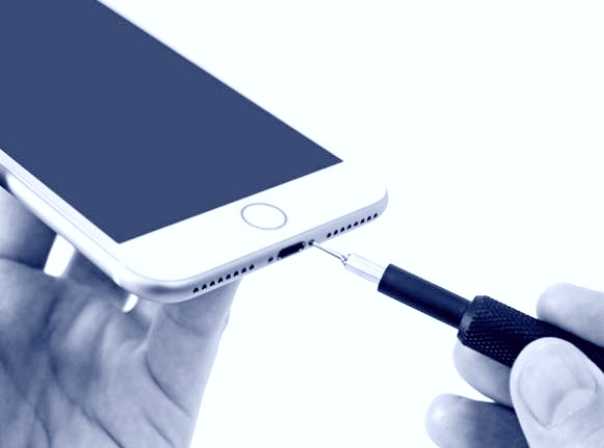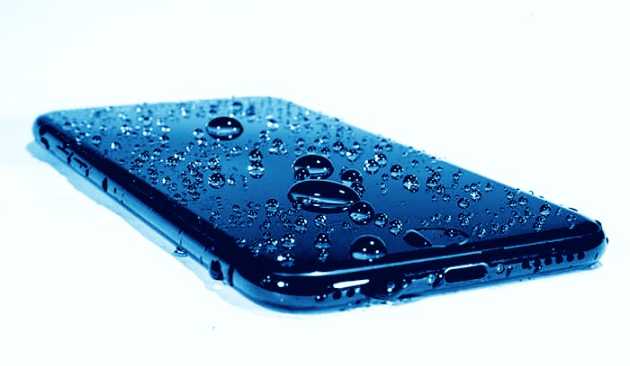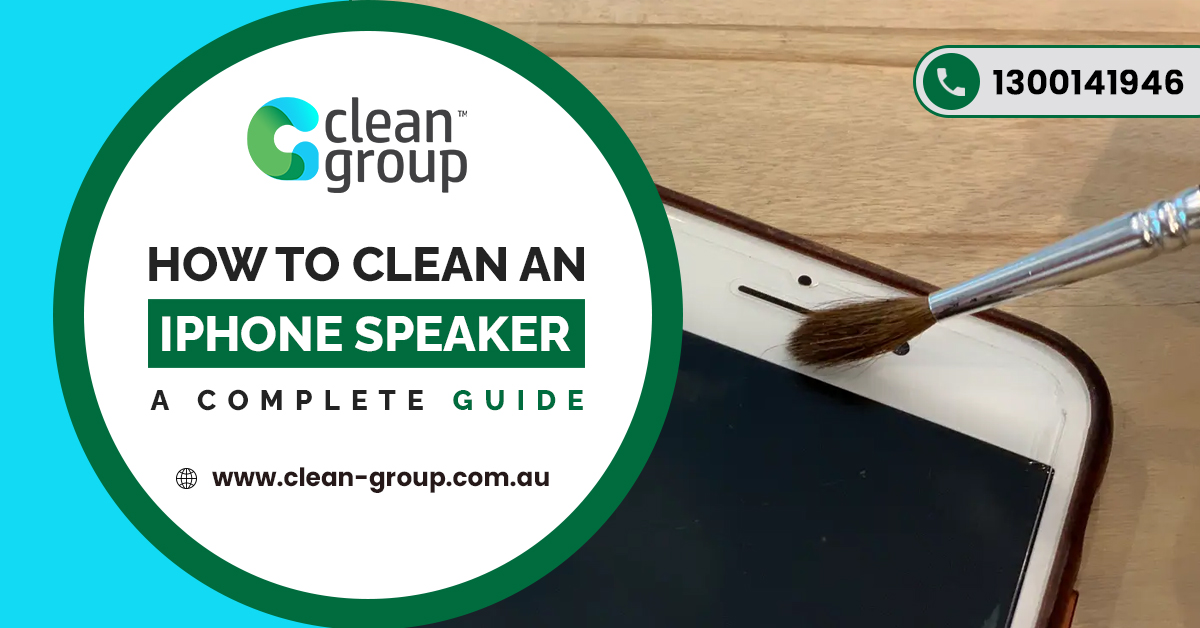Your iPhone speaker is probably dirty and dingy right now, but there’s nothing to fear. You can clean it with canned air, a soft-bristled toothbrush, or use adhesive tape to get the gunk out from around it. If your speaker isn’t playing sufficiently anymore, here are iPhone speaker commercial cleaning steps to get it back to normal:
Which Grills and Holes Should You Clean?

An iPhone has two speakers that you must take care of. Newer models have two sets of speaker holes found at the bottom of the device. However, only one of those is the actual speaker.
If you look toward the bottom edge while holding your iPhone, the grill toward the right is the speaker. The left one is the microphone. However, you may want to clean both of those so that you can hear and talk to others.
At the top of the screen is a secondary speaker grill. This is the stereo speaker and is used as the earpiece when you talk. Since it’s so small, it’s less likely to clog up or become dusty. However, when you clean the iPhone speaker, you should still check this area.
Rubbing Alcohol
You can scrub your speakers with a soft-bristled toothbrush that can get into the ports. The gentle motion should get the gunk and grime off. If you need it to be wet, you can dip the tip of your brush into some rubbing alcohol, but don’t put the entire brush into the liquid.
Painter’s Tape
The painter’s tape is often blue and used to keep paint off the trim. It’s a pressure-sensitive adhesive, so it’s ideal for cleaning your iPhone speaker.
Tear off a short piece and roll it into a circle with the sticky side out. It should fit over your index finger, so slide it over there now. Press the tape into the iPhone speaker to remove the bits and grime that’s accumulated inside.
After each application onto the speaker, check the tape’s surface. If you see any grime or lint, remove it, throw it away, and create another small cylinder to repeat the process.
Compressed Air
Canned air can help to remove dust and lint from the speakers. This is canned oxygen, and you can find it in almost any store. Primarily, it’s used for electronics and computers.
Lay the phone flat and make sure the screen is down. Make sure you read the directions on the canned air before using it. Aim the air nozzle at the speaker from the appropriate distance located in the instructions. Squeeze the handle briefly and then release it to get a burst of air.
Paintbrush
If you find that a toothbrush doesn’t get inside far enough, you may want to use a small paintbrush. Trim down the bristles to about ½-inch for more control.
From there, you gently brush across your speaker from the bottom to the top. Move across the length of your speaker several times, but don’t drag the brush over the speaker’s axis.
It might also be helpful to use a paperclip or something small like that to get into the speaker holes and clean the gunk out from them. A toothpick is another great choice.
Just make sure that you use as little pressure as possible, tilting the toothpick until the bits pop up. The force should be sideways and upward instead of into the phone.
Cleaning Your Headphone Jack
If you can hear sound normally but not in your headphones, there could be debris in the port. That could send a false signal to the phone, indicating that no headphones are plugged in or that they are. Disconnect the headphones from the phone before cleaning the port.
Grab a cotton swab and remove the cotton from one end by pinching it with your forefinger and thumb. Then, pull your hands apart to get the balled cotton off of the end, and throw it away.
Pinch the other end loosely and roll the swab along the spool to loosen it a bit. Put that part into the headphone jack, guiding the narrow end of the cotton inside. Turn it around a few times and remove it.
Check to see if your speakers work now.
If that doesn’t do the trick, you may need to use compressed air. Lay your phone onto a flat surface, and position it so that the headphone port is facing you. Point your canned air nozzle at the port from the appropriate distance. Squeeze the handle and release to let out some air.
Other Speaker Fixes
If those steps didn’t work, you should check the speaker settings on your phone. Make sure that the alerts and ringer slider are set to the highest volume.
Restart your iPhone to ensure that the speaker settings were changed. Test the sound once it’s restarted. If that doesn’t help, you might need to contact Apple support for help.
Likewise, you may have to remove the case from the iPhone to hear the noises. Some cases restrict or muffle the speakers, so they don’t work right.
It might also be wise to check for updates to the iPhone. Sometimes, sound glitches happen because the firmware or drivers are outdated. Connect the phone to Wi-Fi and go to the settings menu. From there, you tap “general” and then on Software Update. If there are any, you can download and install them.
Removing Water with Sound

If the iPhone got wet, it might not work correctly for a while. You may hear crackling noises. Removing water isn’t easy, but it is possible.
Consider downloading a sonic noise app from your App Store. It generates noise at any frequency, and you want to set it to 160 Hz or higher to get water out of the speaker.
Conclusion
Smartphones are the dirtiest piece of equipment you use each day. Your hands always touch it to talk, play games, use apps, and all the rest. If you notice that you can’t hear people speak or play music, you need to clean out the iPhone speaker.
You learned how to clean an iPhone speaker with several different methods. You should now be able to tackle any issue related to sound and noise.

